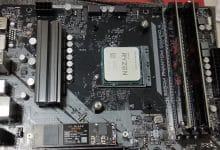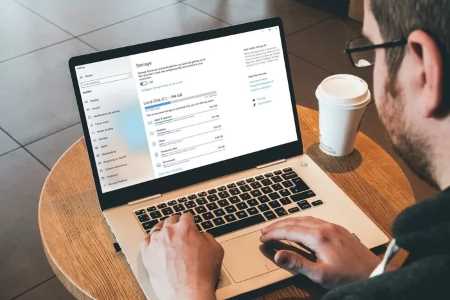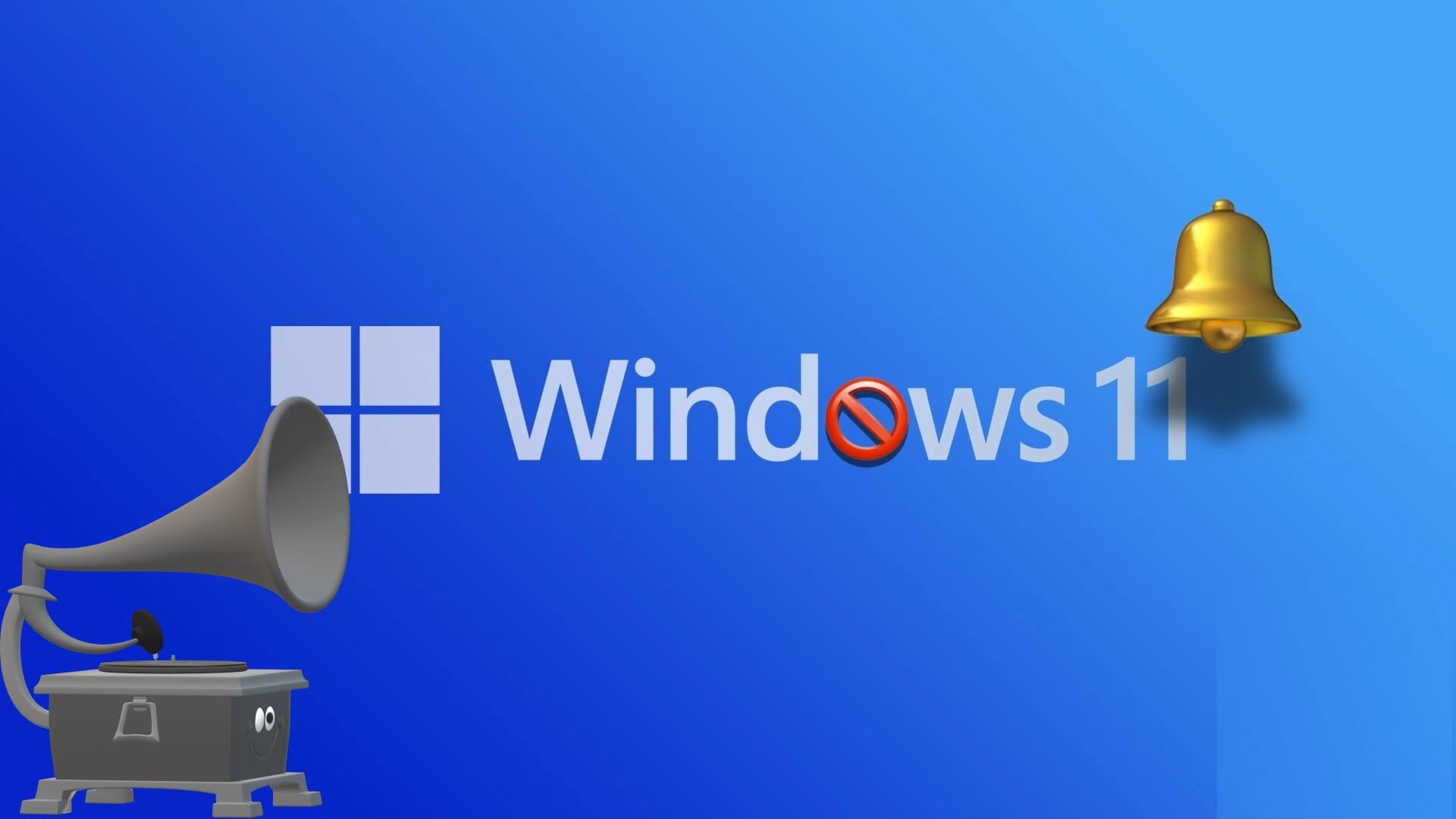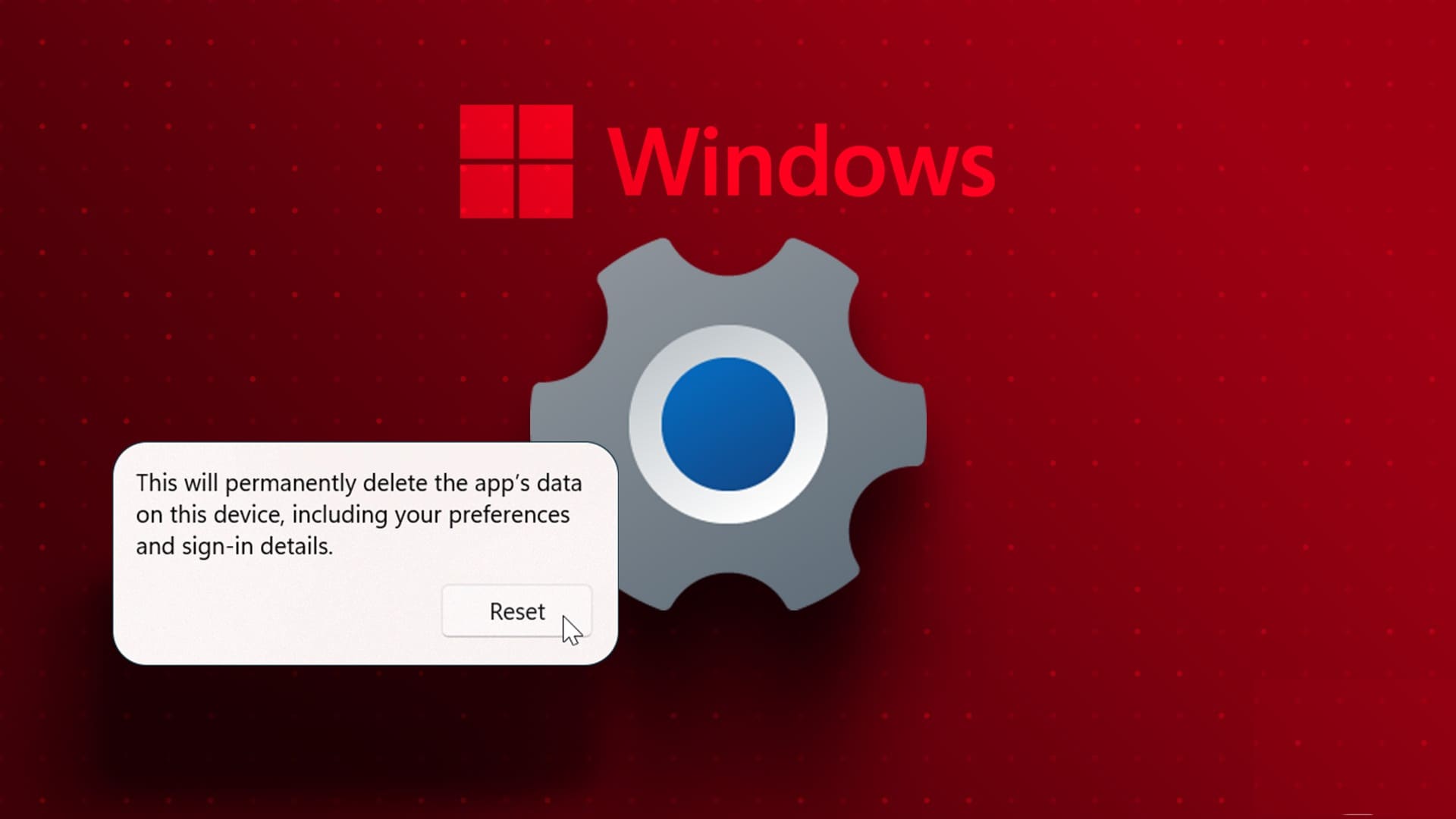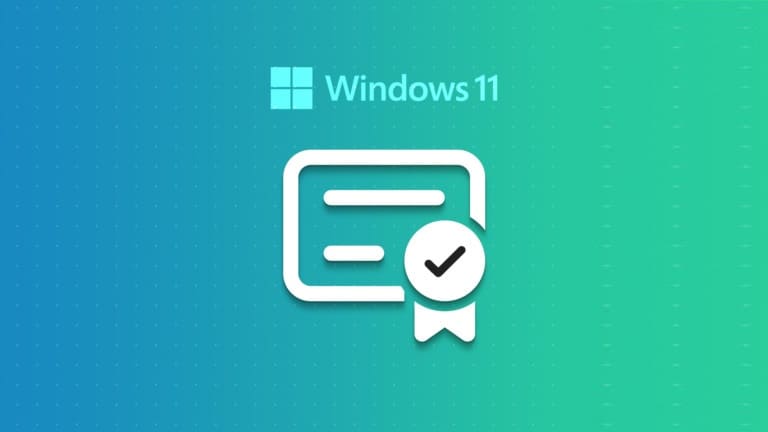Remote Desktop is a feature of the Windows operating system that allows you to access your computer from another computer. Microsoft has also added support for Android and Mac devices, so the feature isn't limited to Windows users only. Although many Alternatives to this app Like AnyDesk, this built-in tool remains the simplest to set up and use. However, many users experience problems connecting to a computer using this feature. If you encounter this annoying error, don't lose hope. We'll list several fixes that can help you resolve it.
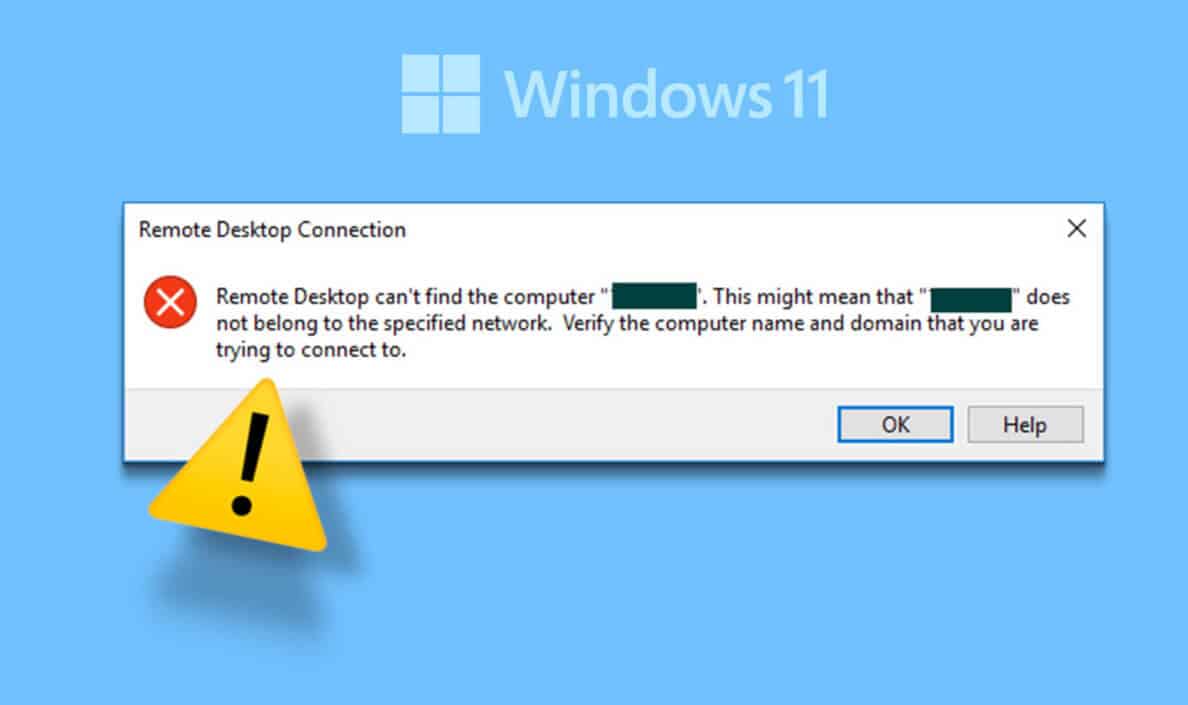
1. Check your internet connection
Remote Desktop requires a consistent connection with decent bandwidth to function. If you're trying to access a computer that doesn't have an internet connection, you'll encounter an error. Therefore, ensure that both the host computer and the device you're using to connect to it have internet access. Then, retry the connection and check if the error is resolved.
2. Enable Remote Desktop on the target computer
Remote Desktop is an exclusive feature. For Professional and Enterprise editions of WindowsHowever, if this feature is disabled on the host computer, you will encounter a connection error. Repeat the following steps to enable it:
Step 1: Click on Windows key + I Shortcut to launch an application Settings.
Step 2: in System Department Scroll down and tap on the option Remote Desktop.
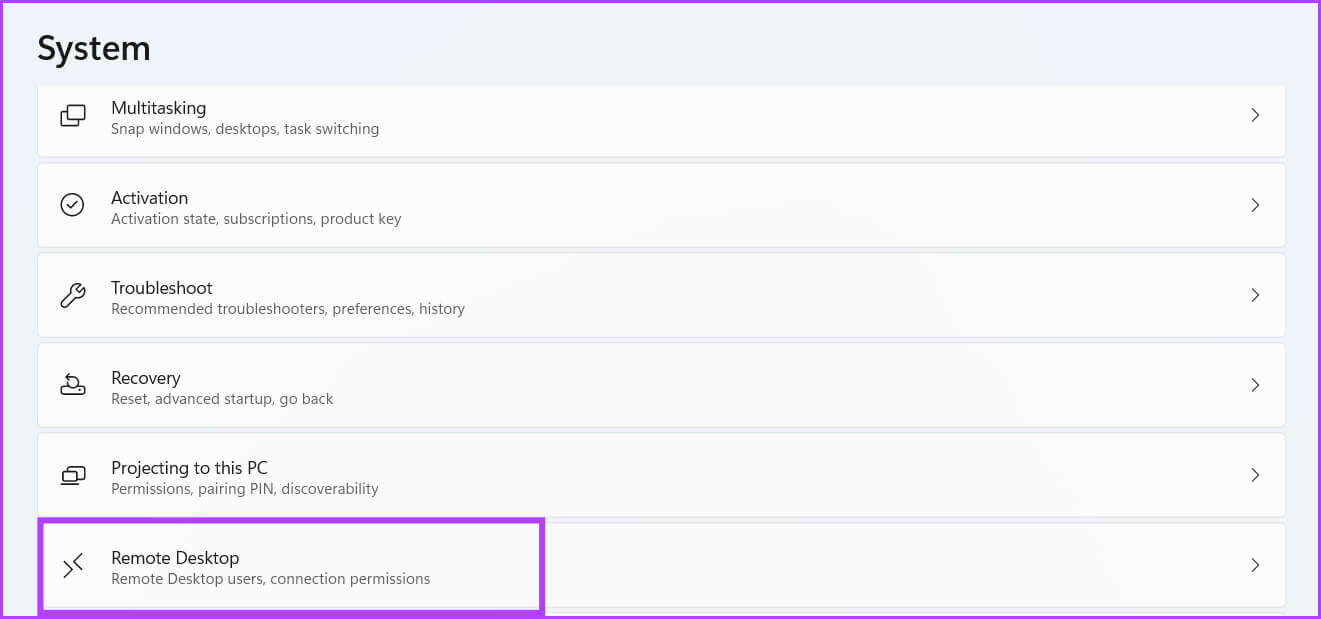
Step 3: Check the toggle next to the option Remote DesktopIf it is disabled, click the button. switch to enable it.
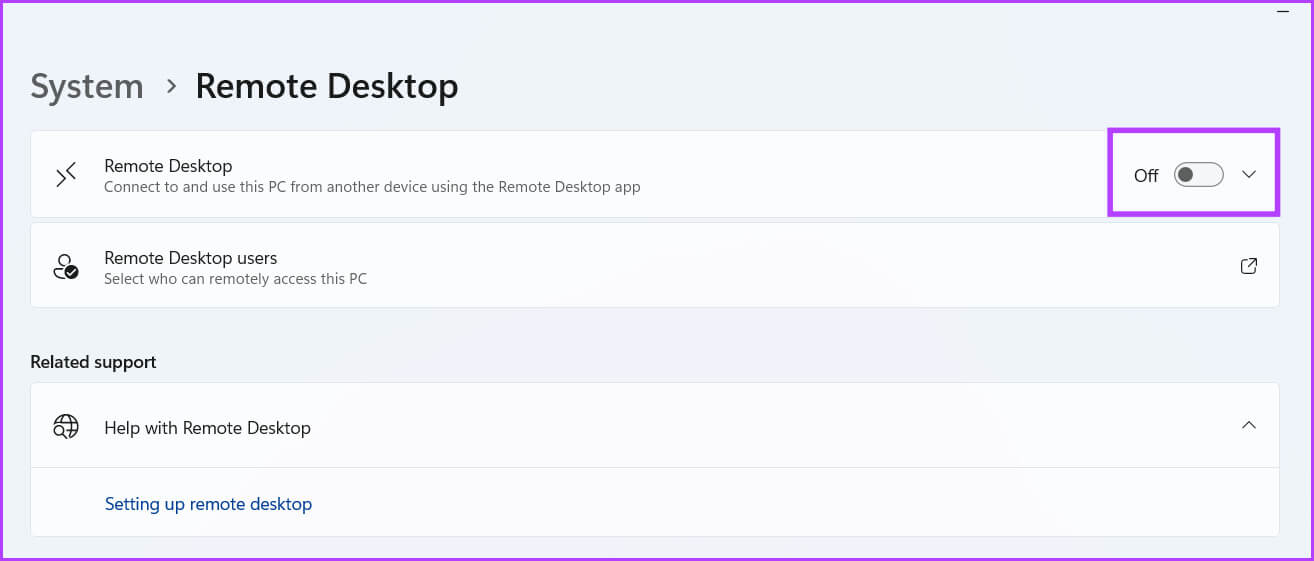
Step 4: A pop-up window will appear. Click the button. "to be sure" to enable Remote Desktop.
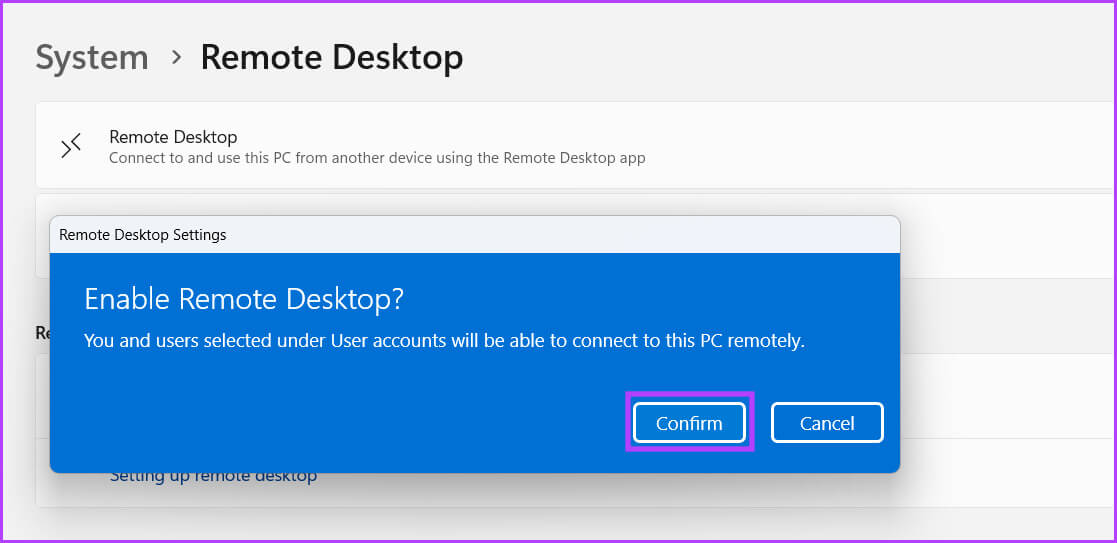
3. Enter the correct credentials for the target computer.
Remote Desktop can only work if you enter the correct name and credentials for the target computer. It's common to enter an incorrect name, username, or password. Furthermore, if the host computer has changed its username, local account, or password, you won't be able to connect. Therefore, make sure you have the correct credentials and try reconnecting.
4. Restart the computer
Background services and processes related to remote desktop can encounter glitches and stop working. Restarting your system can fix this issue. This will close all system- and kernel-level processes and force everything to start over when the system boots again.
Open start menu and click energy icon. Click Restart optionWait until it is done. Reboot the system Boot to the desktop. Now try connecting to the host computer.
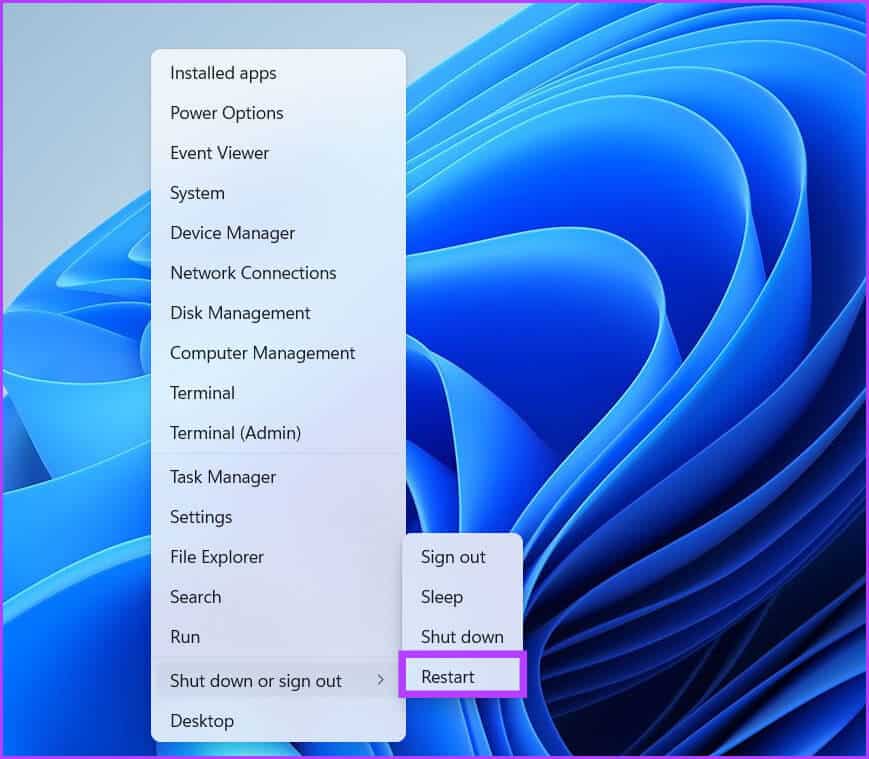
5. Allow Remote Desktop to connect through the firewall
If Remote is blocked from Bypass Windows Defender Firewall Otherwise, you won't be able to connect to the host computer. Therefore, allow Remote Desktop to bypass the firewall on both public and private networks. Here's how:
Step 1: Click on Windows key , And type Control Panel , And press Enter.
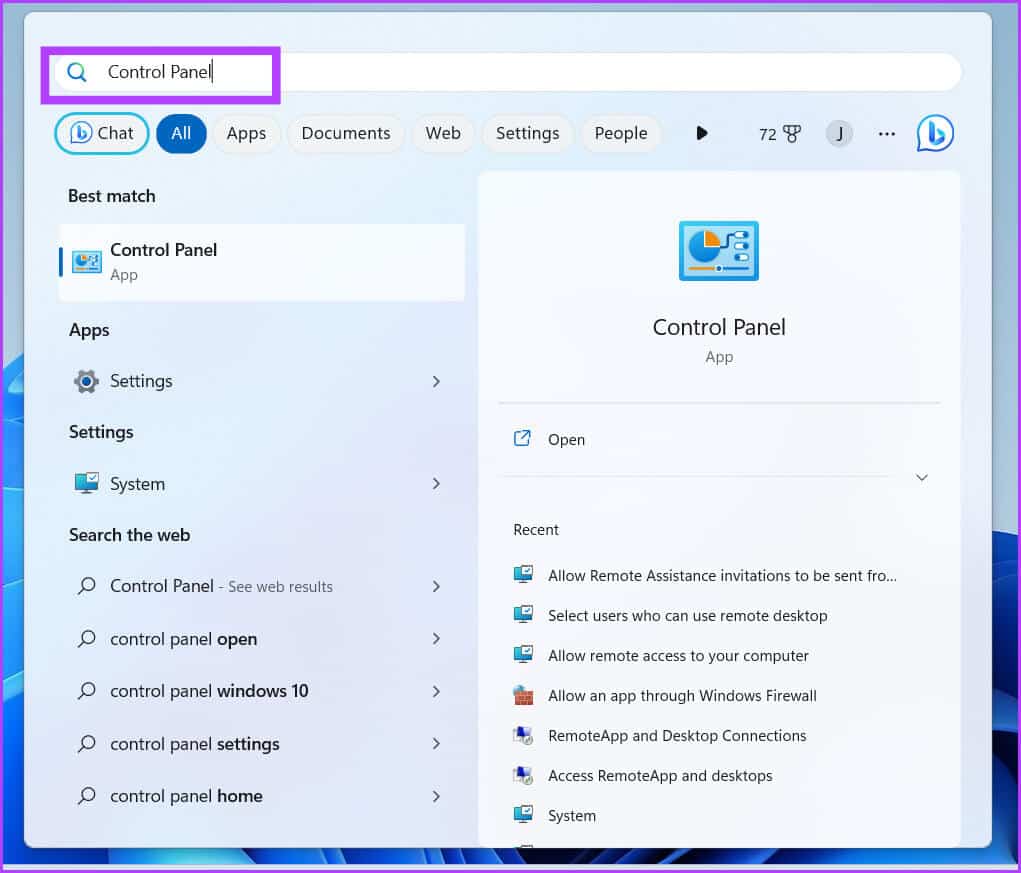
Step 2: in window Control Panel , click Option order and security.
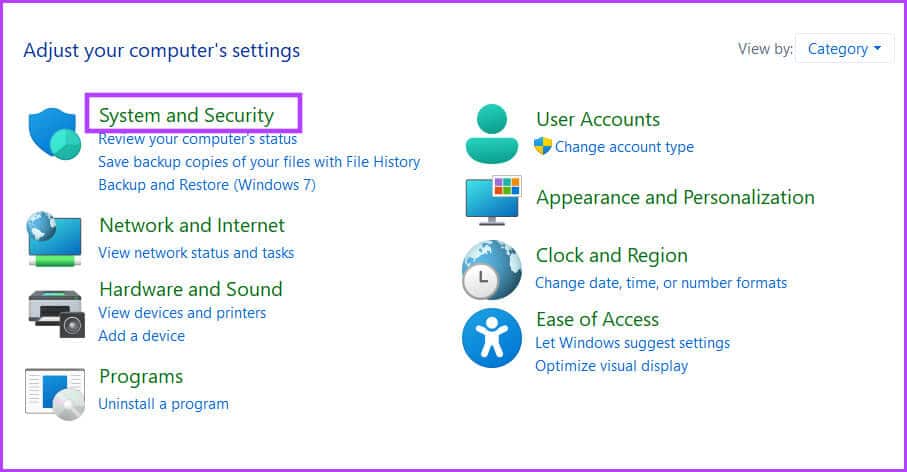
Step 3: Scroll down and find the section Windows Defender FirewallClick on the option. “Allow an app through Windows Firewall.”
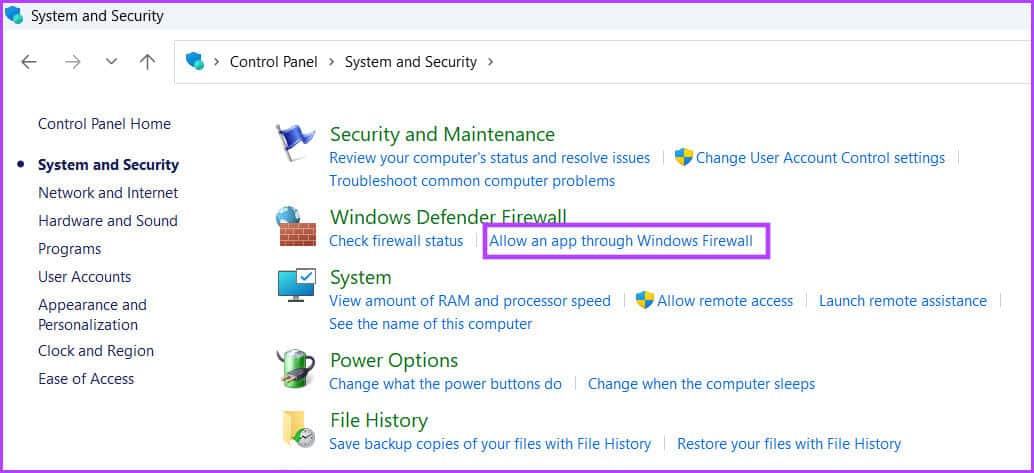
Step 4: You'll need to provide administrator permissions before allowing any application through Defender Firewall. Click the button Change settings.
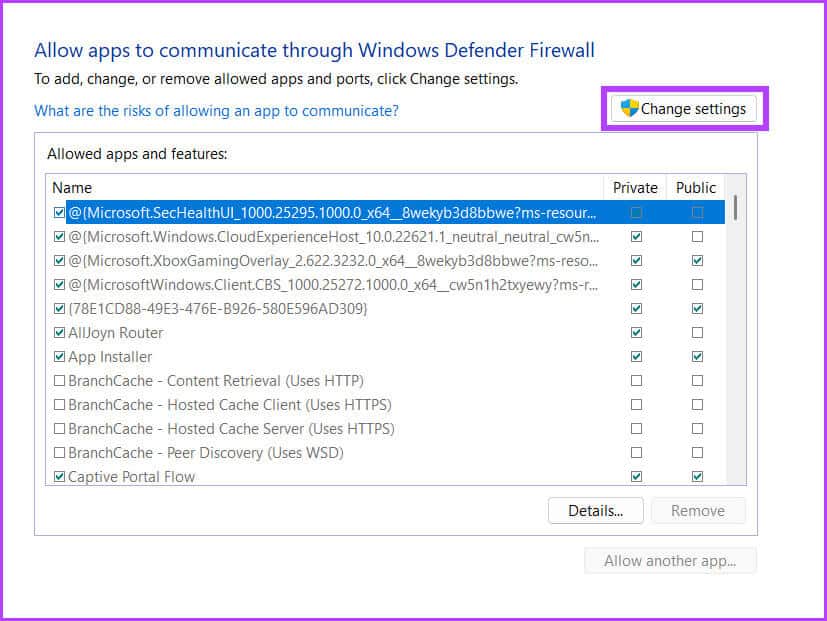
Step 5: in List of allowed apps and features , find an option Remote Desktop. Click all the check boxes next to the option. Then press the button. OK.
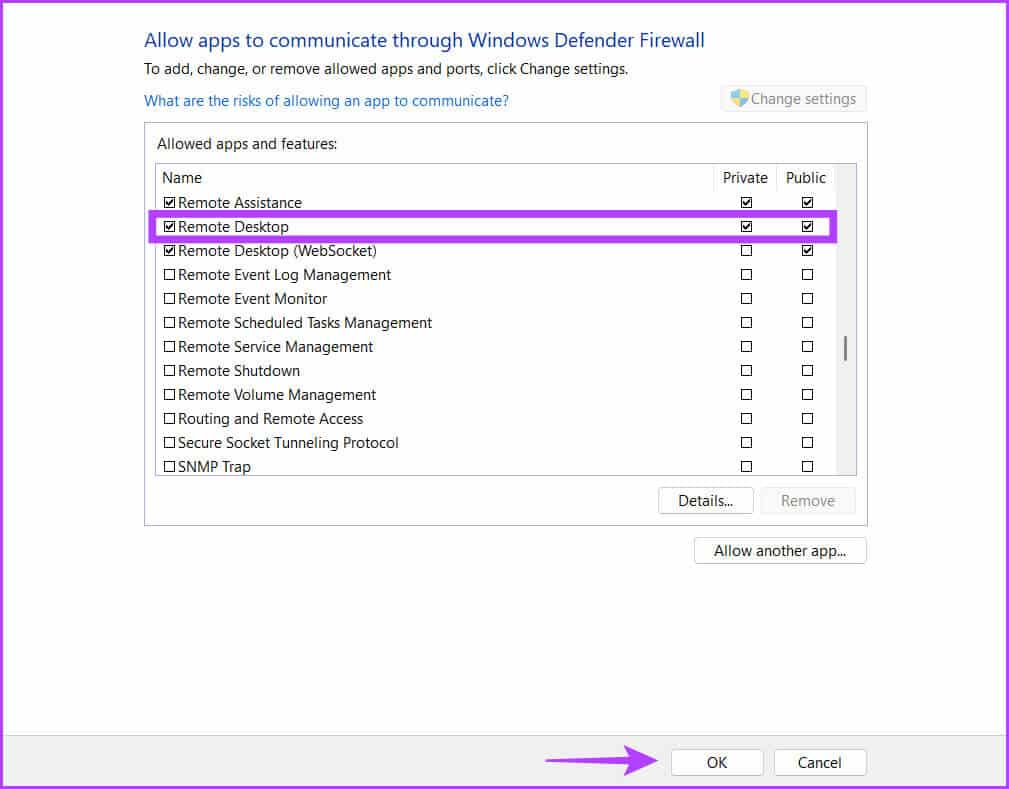
Then, you can Remote Desktop Bypass the system firewall and allow incoming connections. Try connecting to the host computer.
6. Configure Remote Desktop Services
The Remote feature relies on the Remote Desktop service and the UserMode Port Redirector service to function properly. If these services are stopped or disabled on your system, other computers won't be able to connect to your computer. Therefore, you must configure this service to run automatically in the background. Here's how:
Step 1: Click on Windows key + S shortcut To open Window Search , And type services.msc , And press Enter.
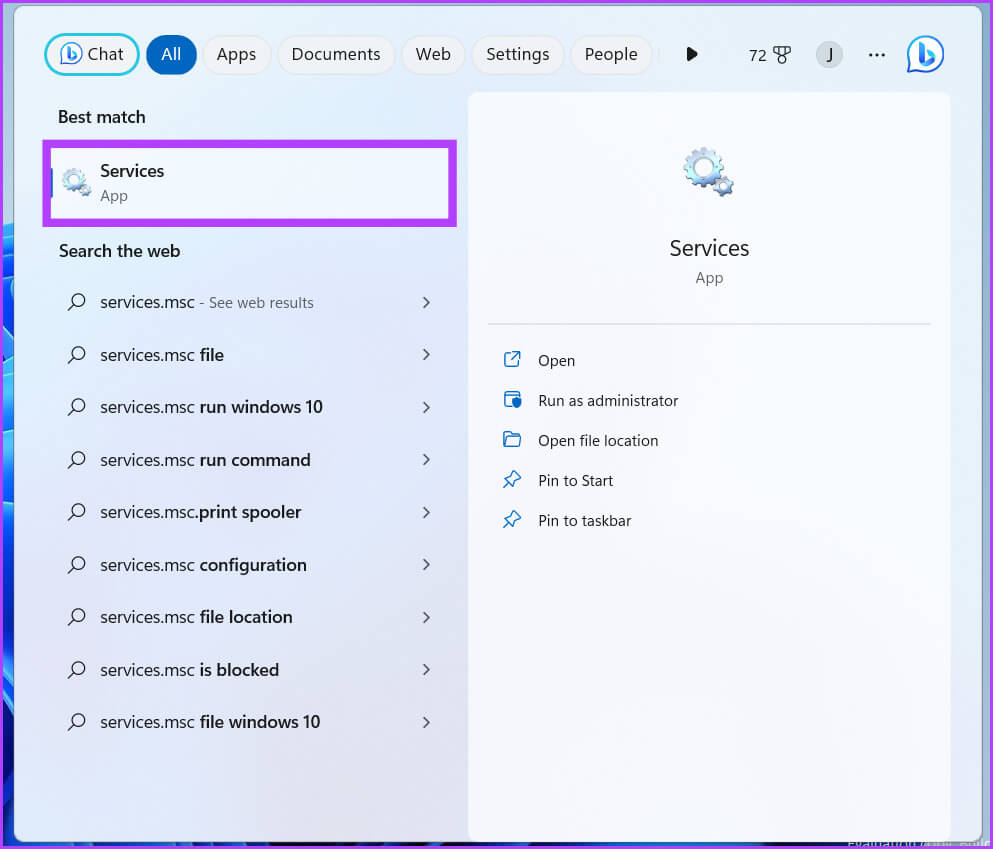
Step 2: Next, locate Remote Desktop Service in the list and double-click on it to open Its characteristics.
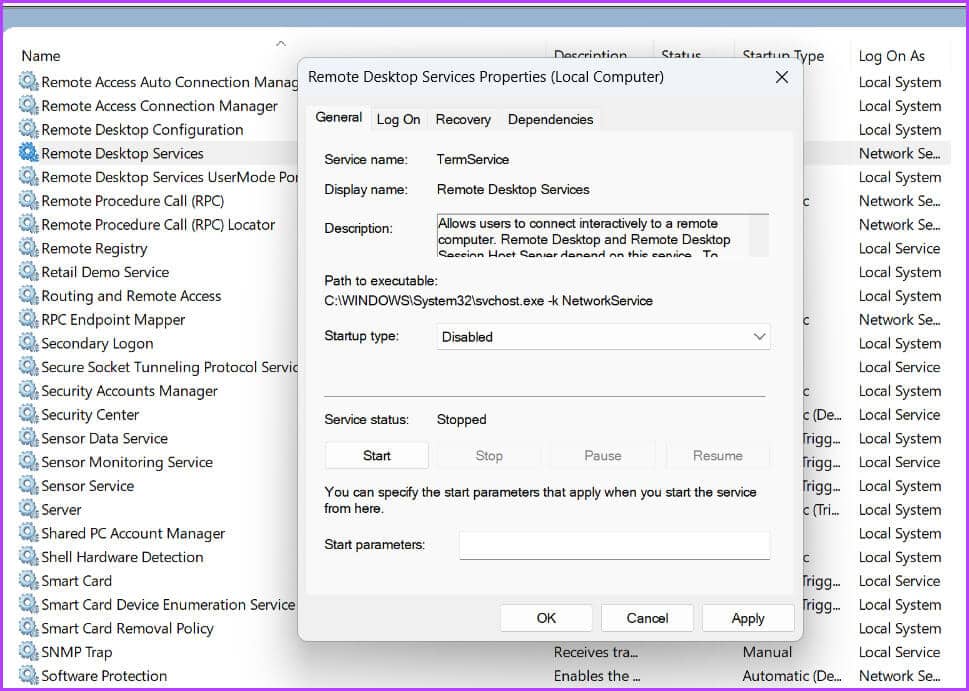
Step 3: Expand the startup type and select the Manual option. Then click the button "application".
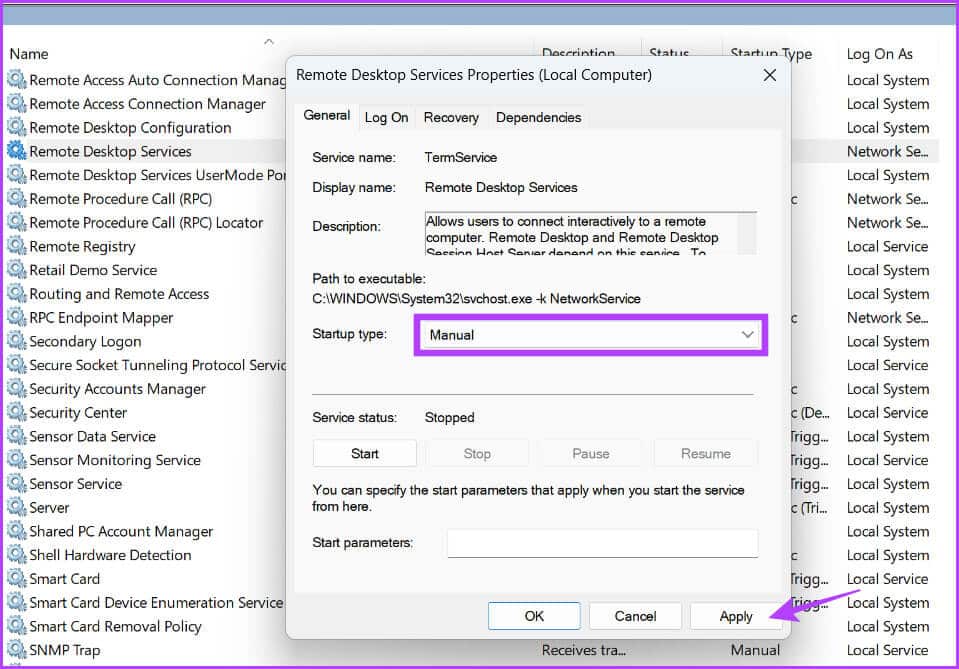
Step 4: Click the button "Start" Then click the button "OK".
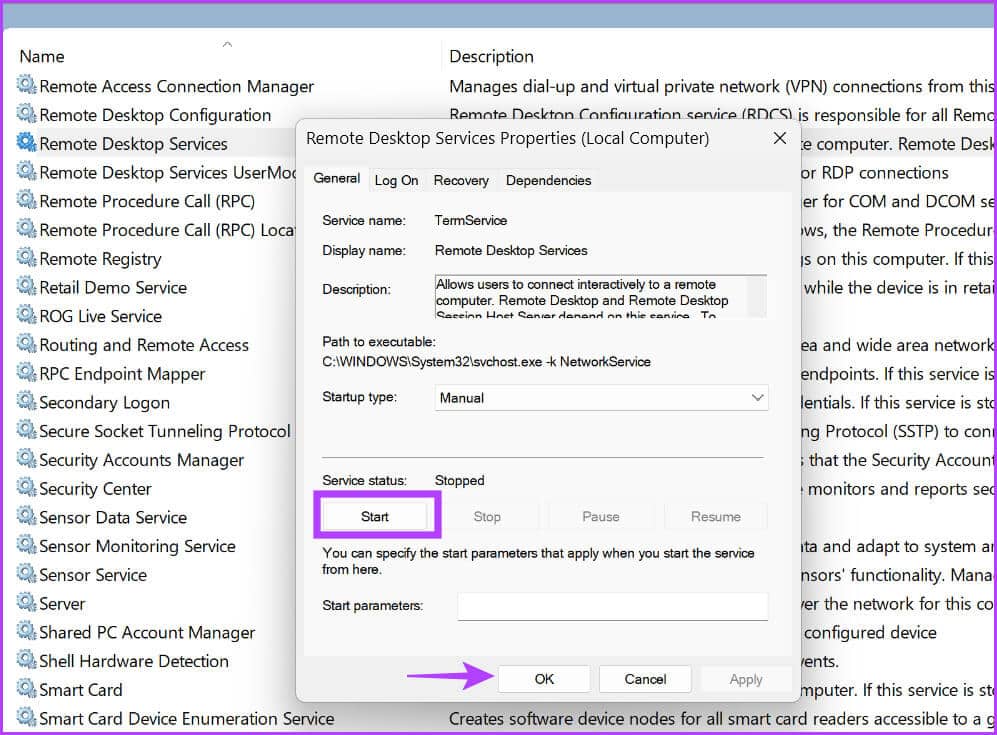
Step 5: Similarly, configure the service. Remote Desktop Services UserMode Port Redirector And start running it.
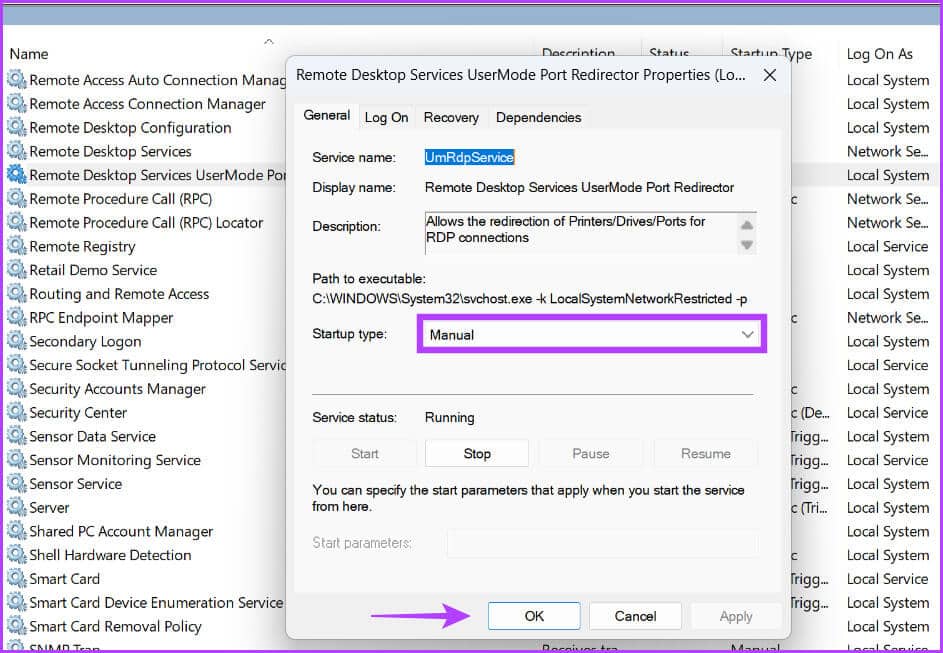
Step 6: Close window Services.
7. Use the correct port for Remote Desktop.
Remote Desktop uses the RDP protocol, which listens on port 3389. However, if a program or application changes the port number, the guest computer will not be able to connect to it. This method involves tweaking the registry, and we highly recommend doing so.Create a registry backup Before you do this, here's how:
Step 1: Click on Windows key + S abbreviate, and write Regedit , click on the option Run as administrator.
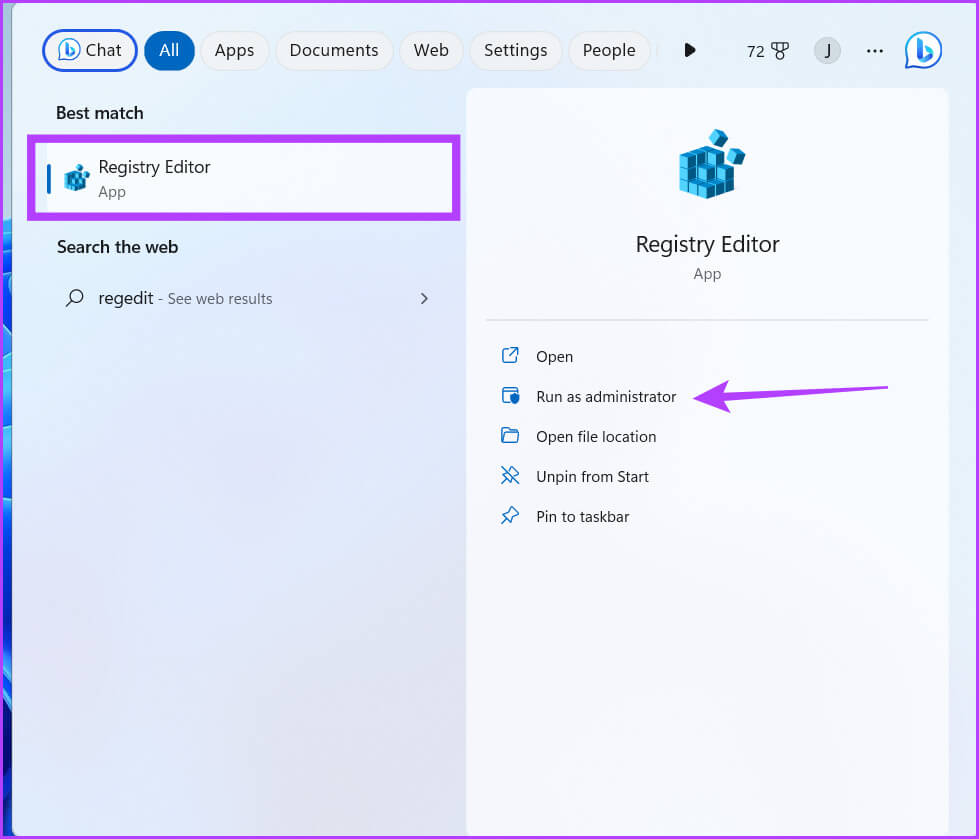
Step 2: Go to address bar In the Registry Editor window paste the following path:
Computer\HKEY_LOCAL_MACHINE\SYSTEM\ControlSet001\Control\Terminal Server\WinStations\RDP-Tcp
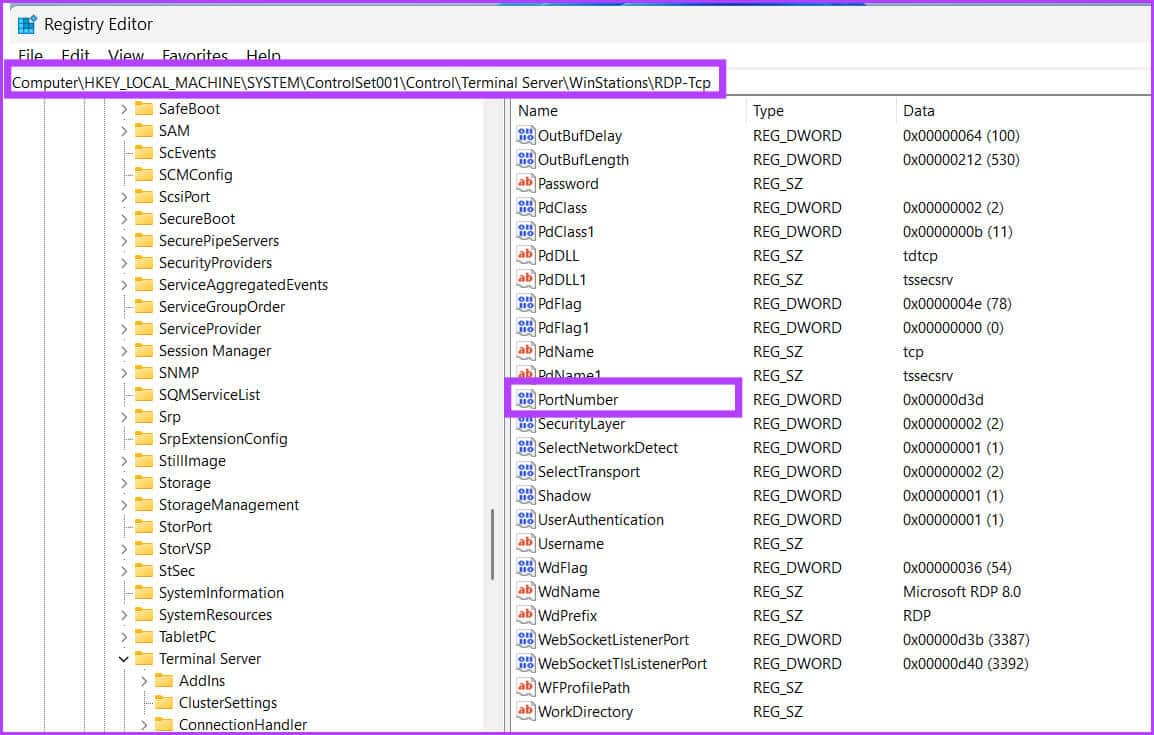
Step 3: Go to the right pane and double-click on the value. PortNumber DWORD.
Step 4: Change the base to decimal and modify the value data to 3389.
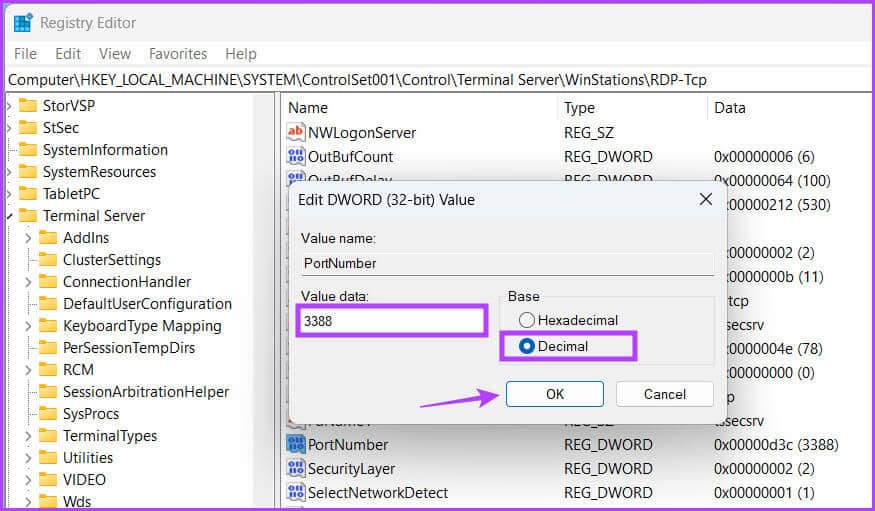
Step 5: Click the button "OK" Close the Registry Editor. Restart your system for the registry changes to take effect.
8. Clear DNS Cache
Outdated or corrupted DNS cache entries can cause problems establishing connections with the target computer. As a result, you won't be able to connect to the correct host computer. You should flush your DNS cache and then try connecting again. Here's how:
Step 1: Right click on the button START YOUR Select the Terminal option from the list. Power User.
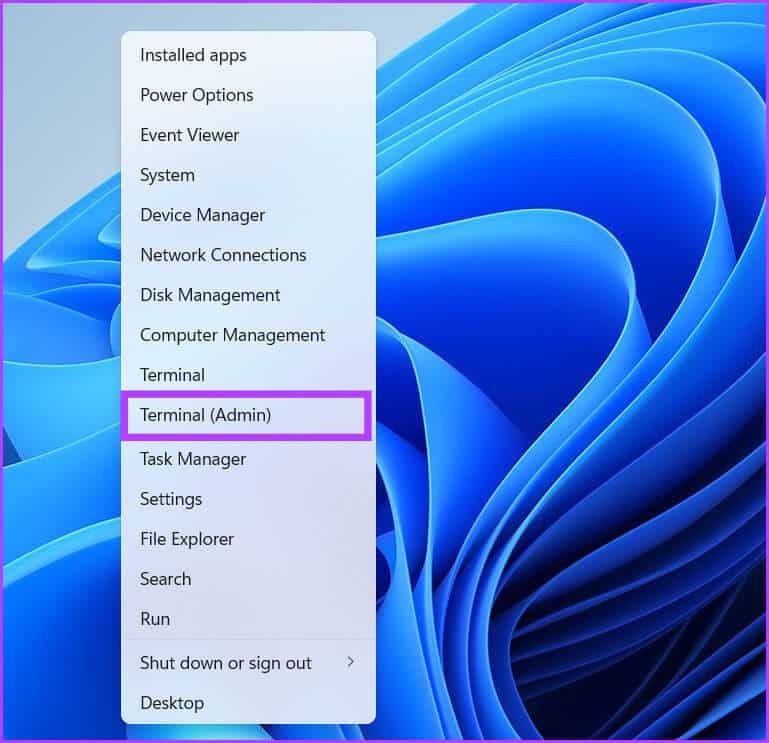
Step 2: in window Bus Terminal , type the following command and press Enter:
ipconfig / flushdns
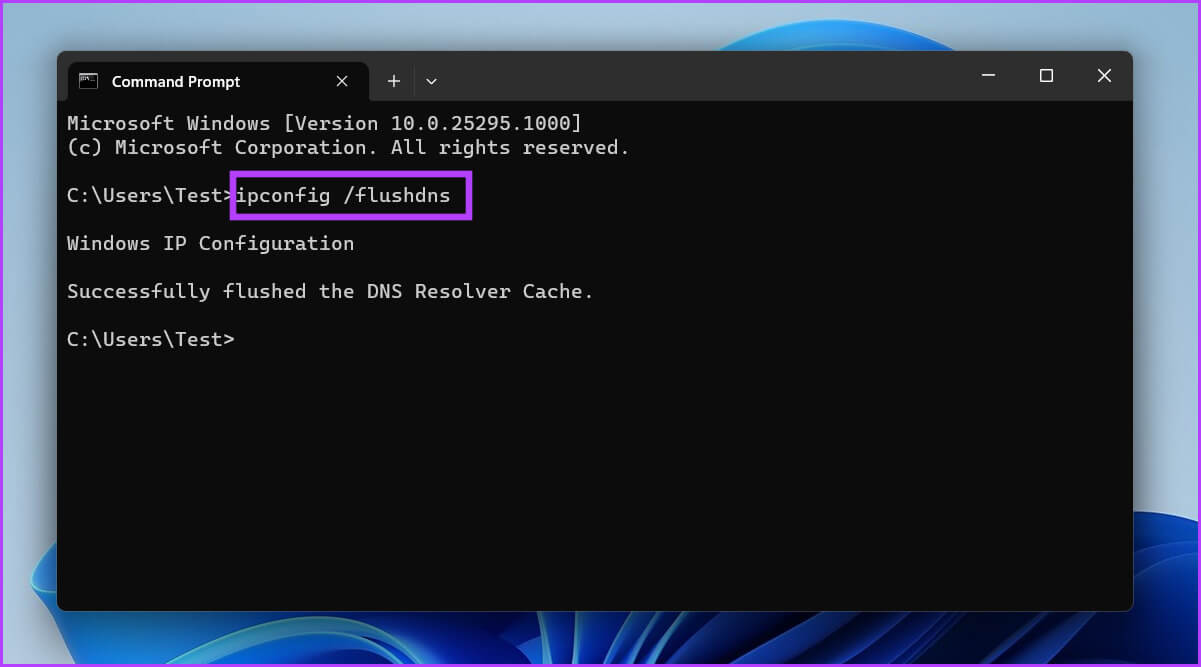
Step 3: Close window Terminal.
Manage your computers remotely
Remote Desktop is a free alternative to AnyDesk and TeamViewer. However, it is only available for Windows Pro and Enterprise users. If you are using the Windows Home edition, you can only connect to the remote desktop system but cannot create a remote desktop for your system. We hope the above methods will help you restore Remote Desktop to a working state.


